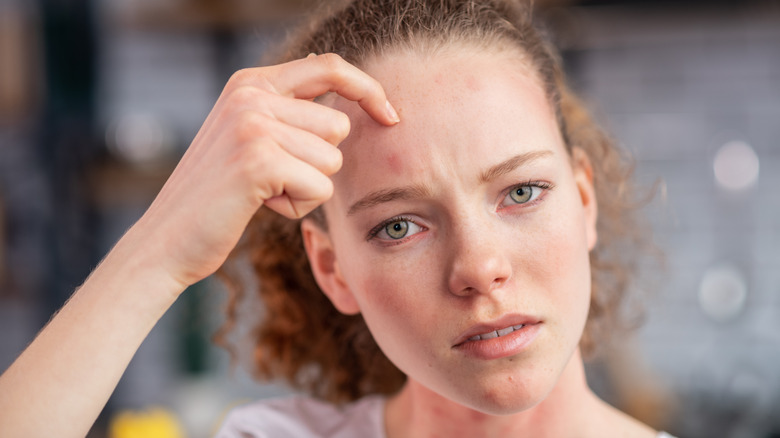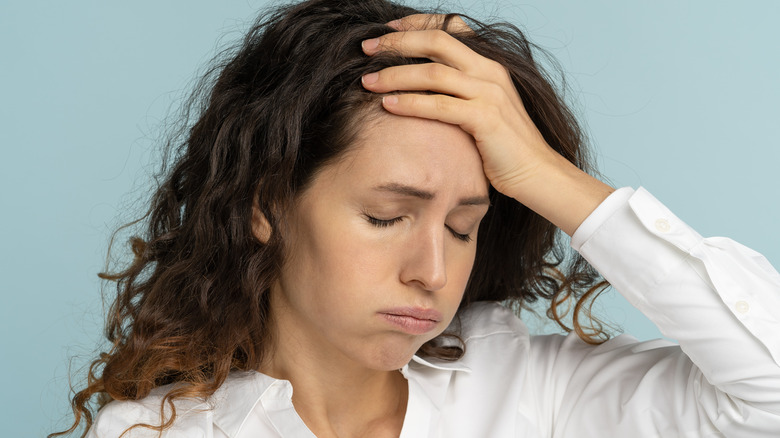What It Means When Your Forehead Itches
Any unexplained itch can be hard to figure out, and when it happens to be on your face it can be caused by a variety of issues. A reaction to lotion is usually the main culprit, but it can also be the result of underlying medical conditions like contact dermatitis, eczema, acne or even psoriasis, according to the National Psoriasis Foundation.
But what about when this itching occurs specifically on your forehead? Sometimes itchiness in this area can actually be connected to your scalp thanks to the hair products you use, per Healthline, as they are more than likely to sit or run down onto your forehead as you apply them
On some occasions, a forehead rash can be linked to no irritant at all. If you're going through a particularly heightened period of stress, your skin can actually break out in a rash which can occur on your forehead. According to Medical News Today, this occurs due to a "number of hormonal or chemical changes" in the body "that occur in response to stress." These changes cause the blood vessels to "expand and leak," which can result in "red and swollen patches of skin."
There are lots of treatments out there to get rid of an itchy forehead
In terms of treating a forehead rash, thankfully there's a lot you can do to relieve the itch. As Healthline notes, there are dozens of home remedies you can choose from to soothe the area, like applying colloidal oatmeal like Aveeno lotions, a gentle soap, a baking soda paste which can be made when combined with water, per VeryWell Health, or non-irritating lotions.
If the rash or itching sensation has come on as a result of an allergic reaction, Healthline recommends using over-the-counter antihistamines like Benadryl, Allegra, Alavert, or Claritin. Obviously, make sure you speak with your local pharmacist first about the symptoms you're experiencing before going down this route, as it may be something as simple as a stress-related rash or an underlying condition like eczema or psoriasis.
While treating the itch, make a conscious effort to avoid scratching your forehead because this can make it worse, according to the American Academy of Dermatology. Also avoid showering or bathing in hot water, use fragrance-free soaps, lotions, and detergents, reduce stress, and avoid extreme temperature changes.

